-
 Bitcoin
Bitcoin $83,645.2925
2.13% -
 Ethereum
Ethereum $1,810.3926
2.44% -
 Tether USDt
Tether USDt $0.9997
-0.01% -
 XRP
XRP $2.1625
6.88% -
 BNB
BNB $597.0728
1.93% -
 Solana
Solana $120.3405
5.84% -
 USDC
USDC $1.0000
-0.01% -
 Dogecoin
Dogecoin $0.1697
5.76% -
 Cardano
Cardano $0.6612
4.89% -
 TRON
TRON $0.2366
-0.18% -
 Chainlink
Chainlink $12.9367
4.36% -
 UNUS SED LEO
UNUS SED LEO $8.9186
-4.81% -
 Toncoin
Toncoin $3.2881
-3.62% -
 Stellar
Stellar $0.2568
1.07% -
 Avalanche
Avalanche $18.2513
3.22% -
 Sui
Sui $2.2464
5.05% -
 Shiba Inu
Shiba Inu $0.0...01235
3.20% -
 Hedera
Hedera $0.1624
3.07% -
 Litecoin
Litecoin $83.6396
2.15% -
 Polkadot
Polkadot $3.9903
0.78% -
 Bitcoin Cash
Bitcoin Cash $303.0186
2.29% -
 MANTRA
MANTRA $6.2191
-0.79% -
 Bitget Token
Bitget Token $4.5070
0.81% -
 Dai
Dai $1.0001
0.01% -
 Ethena USDe
Ethena USDe $0.9991
-0.05% -
 Pi
Pi $0.7573
46.01% -
 Monero
Monero $217.7441
1.11% -
 Hyperliquid
Hyperliquid $11.9838
7.25% -
 Uniswap
Uniswap $5.9118
4.14% -
 OKB
OKB $51.3601
9.71%
How do NFT trading platforms deal with copyright issues of artworks?
NFT marketplaces generally don't verify copyright; responsibility rests with creators and sellers. Platforms rely on user declarations, but enforcement varies widely, leaving copyright protection a complex, evolving issue often resolved through legal channels outside the platform.
Mar 06, 2025 at 07:48 am
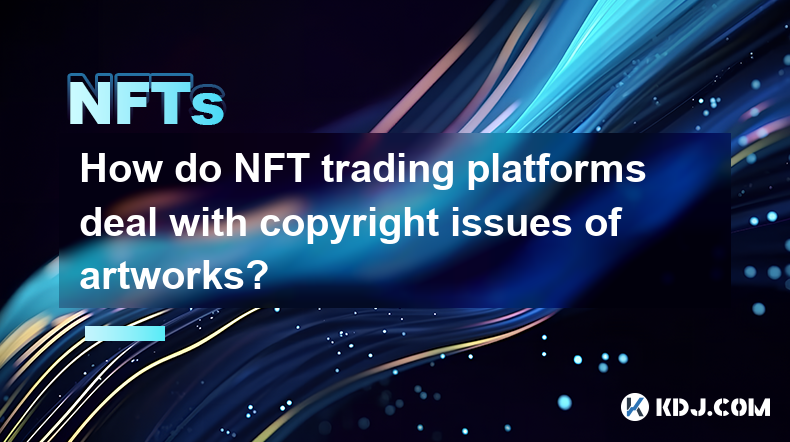
Key Points:
- NFT trading platforms generally do not actively verify the copyright of artworks uploaded. The onus of ensuring copyright compliance rests primarily with the creators and sellers.
- Platforms often rely on intellectual property (IP) rights declarations from users, but enforcement varies significantly.
- Legal frameworks surrounding NFTs and copyright are still evolving, leading to ambiguity and challenges in addressing infringement.
- Several strategies exist for creators to protect their IP, including using smart contracts and collaborating with platforms offering robust verification mechanisms.
- Disputes regarding NFT copyright infringement are typically handled through legal channels outside the platform itself.
How do NFT trading platforms deal with copyright issues of artworks?
The question of copyright protection on NFT marketplaces is a complex one, currently lacking a universally standardized solution. Most platforms operate under a principle of user responsibility. They provide a platform for trading, but don't preemptively investigate the copyright status of every single digital asset listed. This hands-off approach stems from both practical limitations – verifying the copyright of millions of assets is a monumental task – and legal complexities.
The typical approach involves relying on user declarations. Before listing an NFT, creators are usually asked to confirm they own the copyright or have the necessary permissions to sell the artwork. However, the effectiveness of this self-reporting system is questionable. Verifying the truthfulness of these claims is beyond the capabilities of most platforms.
The legal landscape surrounding NFTs and copyright is still evolving. Existing copyright laws are being adapted to this new digital asset class, leading to ambiguities and challenges in enforcement. There's no single, universally accepted legal precedent for dealing with NFT copyright infringement across different jurisdictions.
While platforms don't actively police copyright, some are beginning to offer more robust tools and features to help creators protect their work. Some platforms are integrating tools that allow creators to link their NFTs to verifiable copyright registrations. This added layer of transparency can deter potential infringers.
Smart contracts, self-executing agreements encoded on the blockchain, can also play a role. They can be designed to automatically grant certain rights to the buyer while reserving others for the creator, for example, the right to display the artwork but not to create derivative works.
However, the limitations of smart contracts in copyright protection should also be acknowledged. They are primarily concerned with enforcing pre-defined conditions, and complex copyright scenarios might not be easily accommodated within their framework. Their efficacy is also dependent on the thoroughness of their design and implementation.
Despite the efforts of some platforms and creators, copyright infringement on NFT marketplaces remains a concern. When disputes arise, they typically need to be resolved through traditional legal channels, such as lawsuits, outside of the platform's internal dispute resolution mechanisms. This process can be time-consuming and costly.
Creators can proactively protect themselves by registering their copyrights with relevant authorities before minting and selling their NFTs. This creates a stronger legal basis for pursuing infringement claims. Thoroughly understanding and utilizing available tools and features offered by NFT marketplaces can also help mitigate risks. Selecting a reputable and responsible platform is also crucial, though even the most scrupulous platforms can't guarantee complete protection.
The lack of a unified approach to copyright enforcement across different NFT platforms highlights the ongoing need for clarity and standardization in the legal framework surrounding digital assets. The future likely involves a combination of technological solutions, stricter self-regulation within the NFT industry, and further legal developments to better protect creators' intellectual property rights.
Frequently Asked Questions:
Q: Can an NFT platform be held liable for copyright infringement by its users?
A: The legal liability of NFT platforms for copyright infringement committed by their users is a complex and evolving area of law. Platforms generally aren't directly liable unless they are actively involved in the infringement or have knowledge of it and fail to take action. The legal precedents are still developing.
Q: What happens if I discover my artwork has been illegally minted as an NFT?
A: You should first gather evidence of the infringement, such as the NFT listing, the platform it's on, and proof of your ownership of the copyright. You can then contact the platform's support team and issue a DMCA takedown notice. If that fails, legal action may be necessary.
Q: Do all NFT platforms have the same approach to copyright?
A: No, approaches to copyright vary significantly between NFT platforms. Some platforms take a more hands-off approach, relying on user declarations. Others are starting to implement more robust verification systems and tools to assist creators in protecting their work. There's no single standard.
Q: Can smart contracts completely solve copyright issues in NFTs?
A: No, smart contracts can help enforce certain pre-defined conditions related to copyright, but they cannot address all potential complexities and scenarios. They are a tool, but not a complete solution to the copyright challenges in the NFT space. Legal frameworks are still crucial.
Q: Is it advisable to sell an NFT of artwork I don't own the copyright to?
A: Absolutely not. Selling an NFT of artwork you don't own the copyright to is a clear violation of copyright law and can result in serious legal consequences, including lawsuits and financial penalties. Always ensure you have the necessary rights before selling an NFT.
Disclaimer:info@kdj.com
The information provided is not trading advice. kdj.com does not assume any responsibility for any investments made based on the information provided in this article. Cryptocurrencies are highly volatile and it is highly recommended that you invest with caution after thorough research!
If you believe that the content used on this website infringes your copyright, please contact us immediately (info@kdj.com) and we will delete it promptly.
- We Become One: The Power Of The Shared Musical Experience
- 2025-04-05 19:20:12
- VanEck Has Filed to Launch the First BNB (Binance Coin) ETF in the US
- 2025-04-05 19:20:12
- The Best Crypto to Buy in April 2024: Qubetics, Theta, Render, and Hedera
- 2025-04-05 19:15:12
- Dogecoin (DOGE) and Pepe (PEPE) Have Long Been Fan Favorites
- 2025-04-05 19:15:12
- Russia Is Moving Closer to Selling Bitcoin Confiscated During Criminal Investigations as Officials Work to Create a Legal Structure for Handling Such Digital Assets
- 2025-04-05 19:10:12
- Solana (SOL) ETF Futures Products Struggle to Attract Investors, Bitcoin (BTC) Dominates the Market
- 2025-04-05 19:10:12
Related knowledge
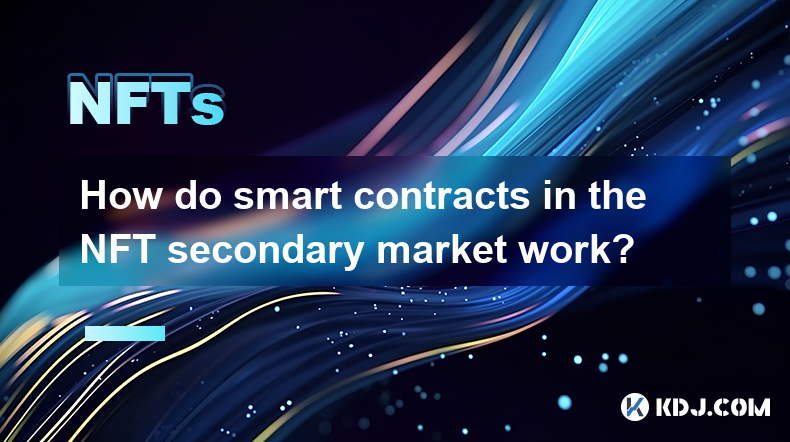
How do smart contracts in the NFT secondary market work?
Apr 03,2025 at 07:14am
Smart contracts play a pivotal role in the NFT secondary market, facilitating seamless transactions and enforcing predefined rules. These self-executing contracts with the terms of the agreement directly written into code are stored on the blockchain. In the context of NFTs, smart contracts automate the buying, selling, and transferring of digital asset...
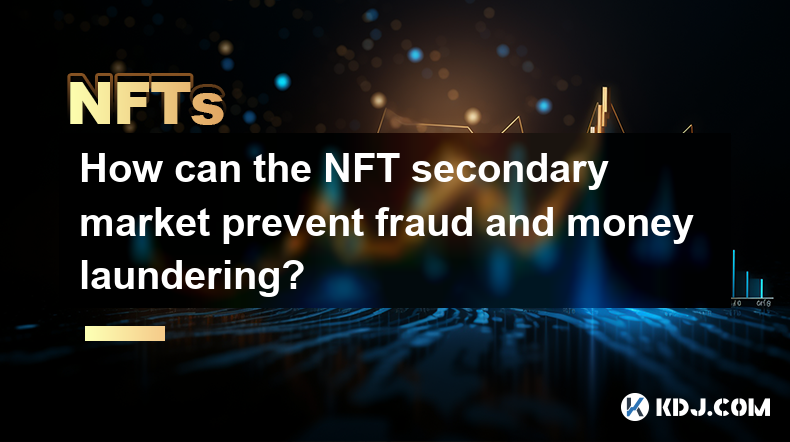
How can the NFT secondary market prevent fraud and money laundering?
Apr 03,2025 at 08:35am
The NFT secondary market has become a thriving hub for digital art and collectibles, but it also faces challenges in preventing fraud and money laundering. To tackle these issues, the market can implement various strategies and technologies to ensure a safer and more transparent trading environment. This article will explore how the NFT secondary market...
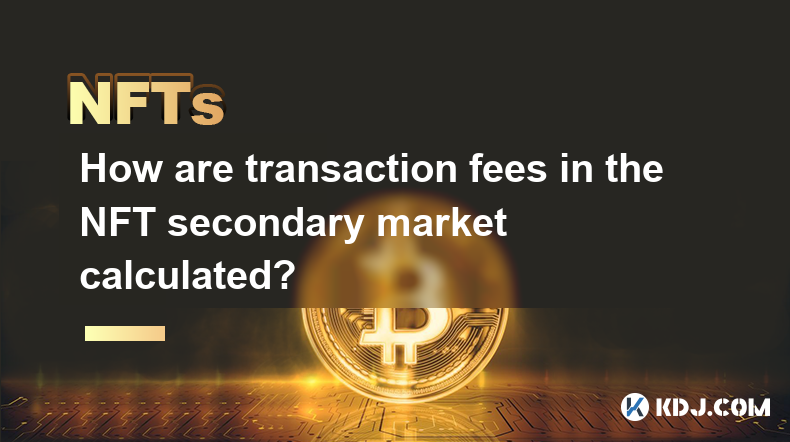
How are transaction fees in the NFT secondary market calculated?
Apr 04,2025 at 05:28am
The calculation of transaction fees in the NFT secondary market is a crucial aspect that both buyers and sellers need to understand. These fees can significantly impact the overall cost of transactions and the profits that sellers can make. In this article, we will delve into the various components that make up these fees, how they are calculated, and w...
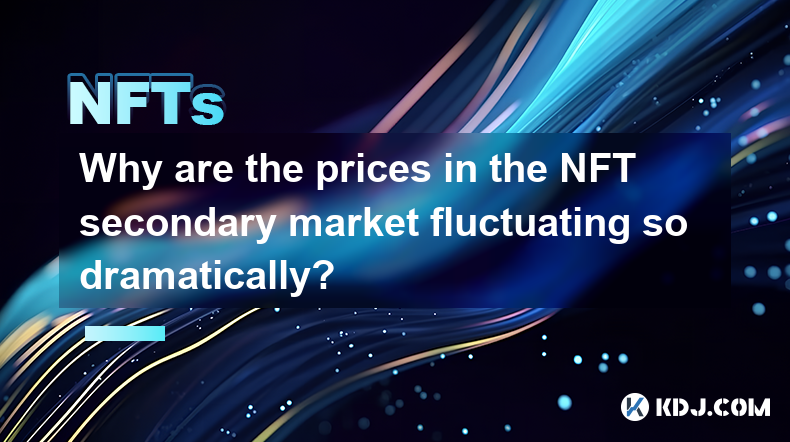
Why are the prices in the NFT secondary market fluctuating so dramatically?
Apr 03,2025 at 10:35pm
The NFT secondary market has been experiencing dramatic price fluctuations, leaving many in the cryptocurrency community puzzled and curious. To understand this phenomenon, it's essential to delve into the factors driving these price movements. From the impact of market sentiment and celebrity endorsements to the role of speculation and the unique natur...
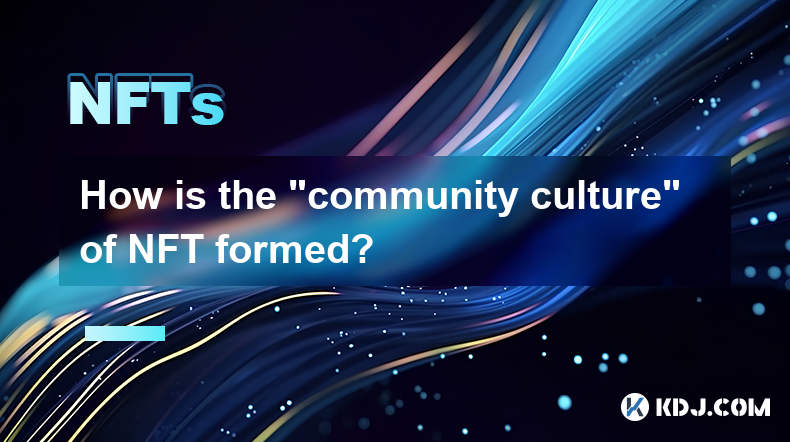
How is the “community culture” of NFT formed?
Apr 03,2025 at 11:07am
The formation of the 'community culture' within the NFT (Non-Fungible Token) space is a fascinating and multi-faceted process. It involves various elements such as shared interests, active engagement, and the creation of a sense of belonging among members. NFT communities often revolve around specific projects or artists, fostering a unique environment ...
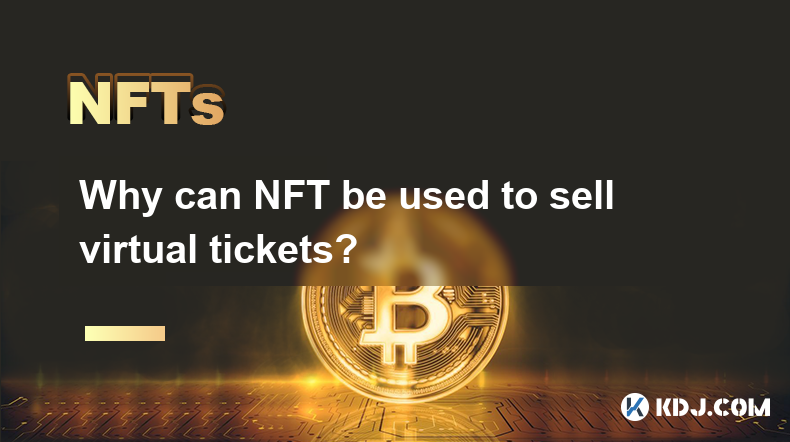
Why can NFT be used to sell virtual tickets?
Apr 03,2025 at 01:35pm
NFTs, or Non-Fungible Tokens, have revolutionized the way we think about digital ownership and value, particularly in the realm of virtual tickets. The primary reason NFTs can be used to sell virtual tickets is their unique nature. Unlike cryptocurrencies such as Bitcoin or Ethereum, which are fungible and can be exchanged on a one-to-one basis, NFTs ar...

How do smart contracts in the NFT secondary market work?
Apr 03,2025 at 07:14am
Smart contracts play a pivotal role in the NFT secondary market, facilitating seamless transactions and enforcing predefined rules. These self-executing contracts with the terms of the agreement directly written into code are stored on the blockchain. In the context of NFTs, smart contracts automate the buying, selling, and transferring of digital asset...

How can the NFT secondary market prevent fraud and money laundering?
Apr 03,2025 at 08:35am
The NFT secondary market has become a thriving hub for digital art and collectibles, but it also faces challenges in preventing fraud and money laundering. To tackle these issues, the market can implement various strategies and technologies to ensure a safer and more transparent trading environment. This article will explore how the NFT secondary market...

How are transaction fees in the NFT secondary market calculated?
Apr 04,2025 at 05:28am
The calculation of transaction fees in the NFT secondary market is a crucial aspect that both buyers and sellers need to understand. These fees can significantly impact the overall cost of transactions and the profits that sellers can make. In this article, we will delve into the various components that make up these fees, how they are calculated, and w...

Why are the prices in the NFT secondary market fluctuating so dramatically?
Apr 03,2025 at 10:35pm
The NFT secondary market has been experiencing dramatic price fluctuations, leaving many in the cryptocurrency community puzzled and curious. To understand this phenomenon, it's essential to delve into the factors driving these price movements. From the impact of market sentiment and celebrity endorsements to the role of speculation and the unique natur...

How is the “community culture” of NFT formed?
Apr 03,2025 at 11:07am
The formation of the 'community culture' within the NFT (Non-Fungible Token) space is a fascinating and multi-faceted process. It involves various elements such as shared interests, active engagement, and the creation of a sense of belonging among members. NFT communities often revolve around specific projects or artists, fostering a unique environment ...

Why can NFT be used to sell virtual tickets?
Apr 03,2025 at 01:35pm
NFTs, or Non-Fungible Tokens, have revolutionized the way we think about digital ownership and value, particularly in the realm of virtual tickets. The primary reason NFTs can be used to sell virtual tickets is their unique nature. Unlike cryptocurrencies such as Bitcoin or Ethereum, which are fungible and can be exchanged on a one-to-one basis, NFTs ar...
See all articles



















































































